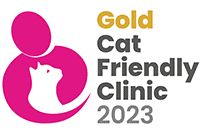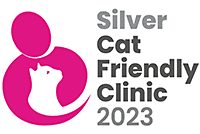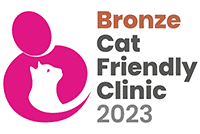Your Pet
Preventative Healthcare (kitten)
-
Fleas
Even clean cats pick up fleas so check for these while grooming. Flea dirt can usually be seen as small brown specks particularly around the neck and base of the tail. When placed on damp cotton wool ‘flea dirt’ slowly dissolves producing bloody streaks. For effective control, adult fleas on the kitten must be killed and reinfestation from the environment prevented. Our Nurses and Vets can provide you with advice and a prevention program tailored to your pet.
-
Worming
Worms can make kittens weak. Kittens should be treated against roundworms at 4-6 weeks and then regularly every 4 weeks until they are 6 months old. After this worming they should be treated for roundworms and tapeworms every 3-4 months depending on how much they hunt and if they have fleas. Our Nurses and Vets can provide you with advice and a prevention program tailored to your pet.
-
Neutering
A male cat can be castrated from five months of age. Neutering will reduce the likelihood that he will spray indoors to mark his territory. He will also spend less time roaming in search of mates and thus has less of a chance of being run over by a car or getting into fights. Cats which are bitten and scratched in fights are more likely to be at risk from infectious diseases. A female kitten needs to be spayed to prevent unwanted kittens. This can be undertaken by 6 months of age. She does not need to have a litter before she is spayed. Spaying has no harmful effects and removes the stress on both you and your cat brought on by calling (the loud mewing which female cats make to attract a mate), pregnancy, birth and the care and rehoming of kittens.
-
Vaccinations
Kittens are susceptible to a range of dangerous infectious diseases. Fortunately, we can immunise against most of these diseases making cases and epidemics rare but it is still very important to make sure your pet is fully vaccinated as the diseases are still a constant threat.
We don’t want to give vaccines unnecessarily so we tailor vaccination courses according to your pet’s age, lifestyle and certain other risk factors. It’s important to get kittens vaccinated early in their life so they are protected before they might meet other cats . Unlike immunisation in people it is essential to get your pet vaccinated annually as some of the vaccines only last a year.
When you come in for the vaccination, your kitten will also receive a thorough health check and the vet can give you advice on all aspects of care for your new arrival.
Cats are vaccinated against viruses that cause severe flu-like symptoms, Feline Leukaemia virus – a cancer-inducing disease of cats – and against Panleukopaenia virus – a fatal gastroenteritis. In kittens the initial course of two vaccinations is administered at 9 and 12 weeks.
Our practices
- London:
- Brackenbury
- Brook Green
- Chiswick
- Ealing
- Finchley (CLOSED)
- Garden Suburb
- Hampstead
- Highbury
- Highgate
- Kensal Green
- Maida Vale
- Palmers Green
- Primrose Hill
- Queen’s Park
- Southgate (TEMP CLOSED)
- St Helens
- St Johns Wood
- West Hampstead
- Winchmore Hill
- Hertfordshire:
- Village Vet Cattery
- Berkhamsted
- Potters Bar
- St Albans (Caytons)
- Cambridge:
- Cottenham
- Longstanton
- Milton
- Royston
- Whittlesford







